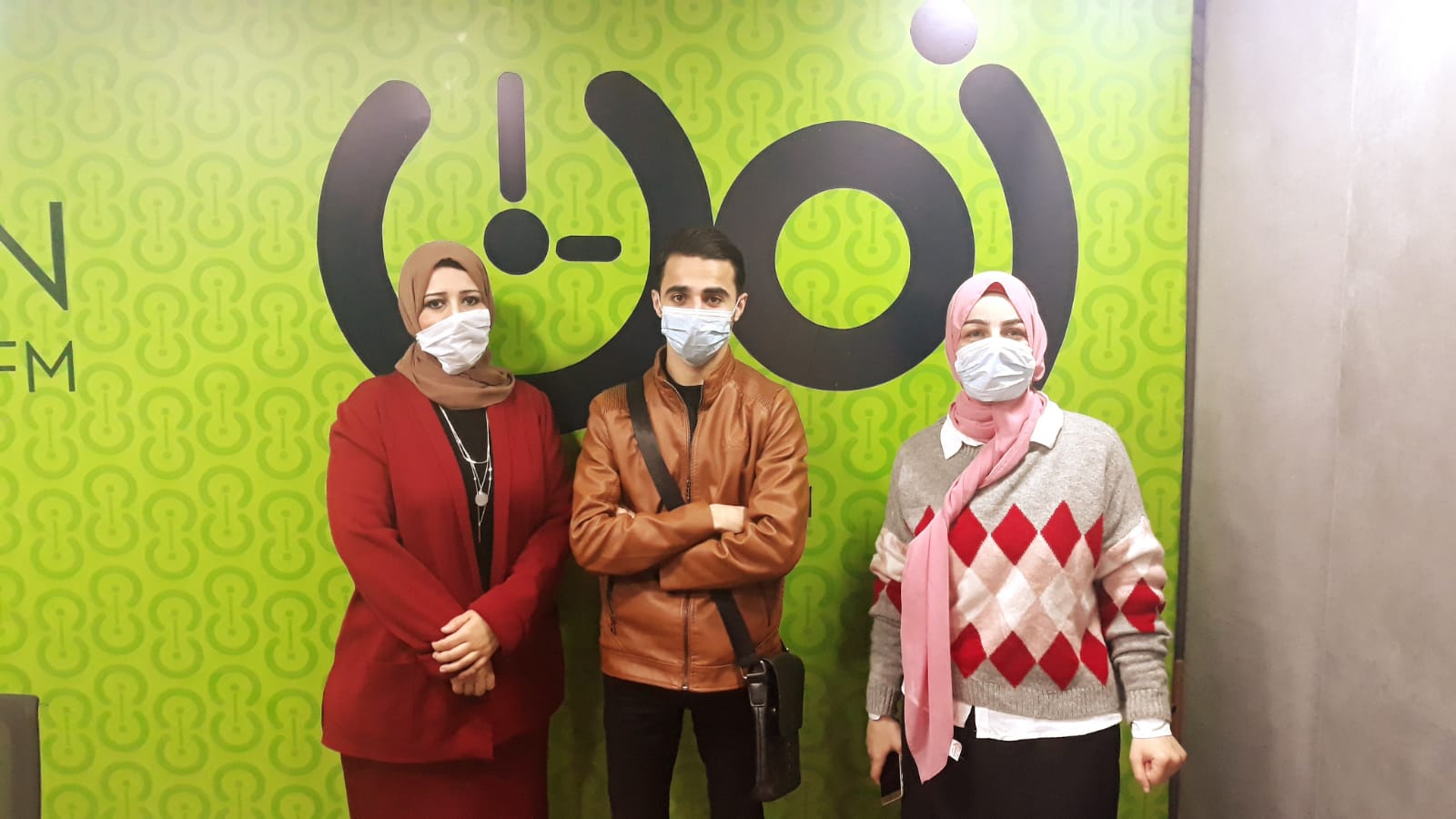The role of Palestinian culture in confronting gender-based violence, GBV, and its challenges were discussed through as research paper prepared by the researchers Mr Abdullah Abu Shamla and Ms Mai Al Sous, where they emphasised the role of cultural activities in confronting GBV.
The discussion was held on Zaman Radio through youth creativity program which is carried out by Pal-Think for Strategic Studies as a part of Young Gender- Equality Research Chapter’s project, funded by the Government of Canada.
The Palestinian writer Yousri Al-Ghoul said in his intervention during the episode that they believe in the role of women in society. And stressed that the Palestinian women are resistance women at work, at home, and everywhere, so we respect their struggle and the human role in Palestinian society.
He pointed out that they are writing a message to the world that Palestinian women, like any woman in the world, have all their rights, so we support all the institutions that support women’s rights.
Al-Ghoul further said that they in the Gaza Strip and the West Bank are suffering from crises resulting from occupation on the ground, not to mention the blockade and the cutting of salaries and other crises, such as the rise in prices and the narrowing of the land, all these accumulations affect both genders.
Then he added that men sometimes play an arbitrary role against women, so they need to find a solution. They can write only as a book, but the economy is the basis of all the bitter reality that the Palestinian citizen suffers from, and the woman is the weakest segment in Gaza.
Al-Ghoul also pointed out that Arab cultural activities, in general, suffer from a lack of funding. Likewise, civil institutions in Gaza Strip suffer, so it is necessary to support culture and cultural activities, and there is an urgent need to present women in cultural reality because it is the culture that constitutes the collective identity of the Palestinians.
Besides, he blamed the occupation primarily for preventing writers and artists from travelling, preventing books from entering Gaza Strip, and assassinates the Palestinian intellectual as happened with Ghassan Kanafani.
He concluded by saying that visual art is more impressive than the audio that is more influential than literature. So movies and series, cinema and drama, are the most influential in the cultural scene.
The researcher, Mai Al Sous, started by saying that they discussed in the paper the contribution of cultural activities to addressing GBV in the Gaza Strip, at a time when the rate has risen under the Corona pandemic.
Then she said that the objective of the paper was to promote cultural activities in all community institutions to address GBV issues, to raise awareness of it and to involve people in finding solutions through such activities. Plus, to make people aware of specialized places to resolve these issues.
Al-Sous further stated that this is useful in highlighting the importance of cultural activities in addressing GBV issues, supporting projects related to it, and promoting their dissemination to reach all segments of society.
Then she pointed out that the cultural reality in the Gaza Strip was declining significantly, with the number of cultural activities in the Gaza Strip amounting to 953 in various institutions, according to the Palestinian Central Bureau of Statistics in 2019. This constitutes a significant and inadequate gap in the implementation of these activities.
As well as, the researchers also interviewed writers, storytellers, and directors, all of whom agreed to the deterioration of the cultural situation in Gaza.
The researcher Abdullah Abu Shamla, clarified the most prominent obstacles that badly affect the Palestinian culture in confronting GBV, including occupation practices, internal conflict, customs and traditions, lack of organized and planned strategy by the Ministry of Culture, poor funding for these activities, lack of staff in these activities and lack of real vision and message from those working in cultural activities.
Abu Shamla stated that the biggest challenges for cultural institutions were the lack of funding, government restrictions, the lack of licenses for cultural institutions, and social impressions opposed to activities such as music and women’s participation in the theatre.
The research paper found several findings, such as, the importance of cultural activities in addressing GBV issues that raise awareness of people, and the absence of the Ministry of Culture in Gaza and its role in disseminating cultural activities in most fields. And a lack of internal and external funding for the dissemination of cultural activities.
The researchers reached several recommendations. Firstly, the need to raise awareness of the importance of cultural activities and to adopt wide choices to find solutions to reduce the phenomenon of GBV. Secondly, to allocate material support to cultural activities related to GBV issues by the Ministry of Culture. Thirdly, the creation of a cultural lobby to promote the dissemination of these activities includes representatives, writers, musicians, officials and those who have an interest in reducing violence against women. Finally, ensuring that cultural workers are protected from material insurance, and as any government employee.



